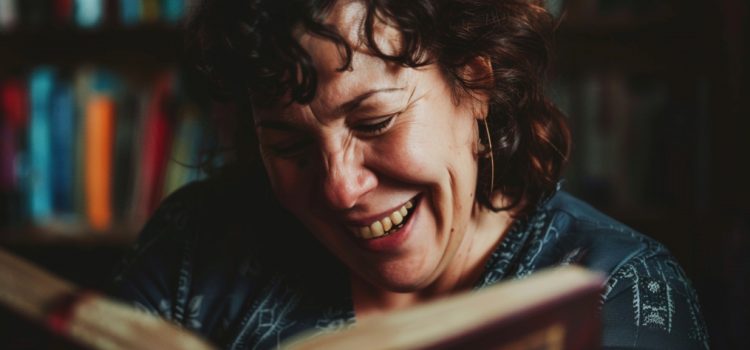
Are you struggling with self-acceptance? Do you want to learn how to embrace radical self-love?
In The Body Is Not an Apology: The Power of Radical Self-Love, Sonya Renee Taylor explores the transformative journey of unconditional self-love. You’ll discover practical techniques to overcome body shame and foster deep self-acceptance.
Keep reading for an overview of this book, and unlock the power of radical self-love and its potential to change your life and the world around you.
Overview of The Body Is Not an Apology: The Power of Radical Self-Love
Sonya Renee Taylor, in The Body Is Not an Apology: The Power of Radical Self-Love, portrays a deep and transformative journey that transcends traditional ideas of self-esteem, characterizing it as a bold act of unconditional self-love. This method fosters a profound and instinctive re-establishment of the intrinsic worth that is essential for the deconstruction of suppressive structures and the facilitation of widespread transformation.
A profound journey towards deep self-acceptance begins internally and extends its influence outward, fundamentally altering society with its power. Taylor promotes the idea of freeing ourselves from restrictive thoughts about our bodies and endorses the establishment of equitable power dynamics by acknowledging the legitimacy of our existence. This method requires a persistent and empathetic scrutiny of our actions and intentions, while evaluating ideas that stem from external influences, and advocating for an authentic, unapologetic way of living. The journey is underpinned by three essential practices that nurture a deep-rooted self-affection, altering our perspective of the world and revolutionizing our interactions with other people.
#1: Radical Self-Love Reconnects Us With Our Inherent Worth
Taylor believes that radical self-love goes beyond mere self-esteem or self-confidence, instilling a profound reconnection with our inherent worth. A bedrock of deep self-acceptance not only strengthens individual ambitions but also cultivates a communal defiance against oppression, going beyond the fleeting satisfaction discovered in self-assurance. Taylor depicts it as a comforting support that fosters a profound re-engagement with one’s own being, rejecting the notion that worth is tied to external validation or physical appearance.
#2: Radical Self-Love Helps Us Overthrow Oppression
Taylor contends that cultivating a deep sense of self-respect is essential in the struggle to dismantle the oppressive systems that perpetuate acts of violence against the body. She stresses the importance of deep self-acceptance as a powerful tool for overthrowing the deep-seated beliefs and norms that subjugate our bodies. We quickly rekindle our innate tendency to affirm ourselves when we cease to rationalize our bodily presence and dismiss the idea that our bodies ought to be associated with embarrassment.
#3: Radical Self-Love Can Change Our Community and the World
Taylor writes that a profound acceptance of ourselves has ripple effects that reach beyond the personal level, impacting communities and resonating around the world. Every small gesture of embracing ourselves unconditionally is embedded in our core and is essential for liberating us from harmful beliefs. She promotes profound self-examination regarding our convictions and actions, emphasizing the significance of collective encouragement over reliance on individual effort alone. A deep self-love that encompasses all facets of who we are helps to dispel the shame frequently linked to our bodies, illustrating how individual development can impact communities and broader society.
Taylor explores the impact on people when they incorporate life-changing convictions into their everyday routines, stemming from the core idea of unconditional self-acceptance. Adopting a stance of radical self-love acts as a comforting cure that tackles social challenges and fosters change at both the personal and community levels. Taylor advocates for a world where actions, viewpoints, and environments are infused with an ethos of embracing our own bodies, thereby fostering a peaceful coexistence.
The Roots of Body Shame
Exploring the roots and impacts of body shame, as well as the discriminatory actions aimed at diverse body types, helps us understand how our perspectives on physical looks and self-worth are shaped, underscoring the significance of challenging these detrimental attitudes to cultivate a healthier collective consciousness. Our bodies frequently carry deep-seated shame originating from personal experiences in childhood and beyond as well as societal expectations and pressures.
Body Shame Rooted in Personal Experiences
Taylor writes that childhood experiences, shaped by the communications and engagements with family, friends, and different media, often lay the groundwork for feelings of shame about our bodies. Body shame often takes root during our early developmental stages and continues to be reinforced by the attitudes and comments of relatives, as well as a multitude of messages from different media outlets. From an early age, children internalize societal standards, recognizing the distinction between the accepted norms and those that deviate, with the latter frequently facing rejection.
Keisha’s experience of being mocked for her hair, which sadly led to traction alopecia—a lasting ailment, shows the deep-rooted nature of these harmful convictions. Many individuals who participate in self-love workshops resonate with Keisha’s story, as they too have their own unique histories of feeling that their bodies were in some way “incorrect.”
Childhood trauma and abuse may instill profound and enduring negative self-perceptions, culminating in a persistent and profound sense of embarrassment regarding one’s physical form. Survivors often internalize such events to such an extent that they come to view their bodies as inherently flawed, as though these stories are a fundamental part of who they are.
Body Shame Rooted in Societal Expectations & Pressures
Societal norms also contribute to these deep-seated beliefs by promoting body shaming. Taylor argues that body shame stems from the belief that some bodies adhere to a perceived ‘normal’ while others diverge from this standard.
The idea that there’s such a thing as a ‘normal’ body creates feelings of insufficiency and drives people to strive for an often unattainable and unrealistic ideal. Studies by groups such as the Girl Scouts Research Institute have highlighted how many young girls tend to emulate the unrealistic body images often portrayed in the media, thereby increasing the societal and familial pressures they face.
The Consequences of Body Shame
Taylor warns that the detrimental consequences of feeling ashamed about one’s body, along with the shift towards embracing all body types, affect not only personal well-being but also the broader community.
#1: A Sense of Alienation From Our Own Bodies
The consequences of body shame can lead to destructive actions and profound self-loathing. Daemon’s upbringing, which taught him to suppress his emotions, mirrors cultural narratives that significantly weaken our connection to and understanding of our own physical selves and unique personal identities. The obstacles arising from these consequences impede the development of deep self-love and the full embrace of our identities.
#2: Body Terrorism
Discrimination and hostility towards individuals who deviate from rigid societal norms of physical appearance is a pervasive form of oppression known as body terrorism. Body Terrorism is a type of violence that increases the likelihood of self-harm and aggressive behaviors. Laws and policies from the past and present, such as the “Ugly Laws” and rules that single out immigrants with higher BMIs, are clear instances of sanctioned bias towards particular physiques, often resulting in profound psychological distress and detrimental effects on the community.
#3: Maintenance of Oppressive Hierarchies
Taylor insists that the perpetuation of hierarchies that assign value to certain bodies while concurrently devaluing others is maintained by the pervasive stigmatization and marginalization based on an individual’s outward appearance. The repercussions of suffering from body terrorism and feeling ashamed of one’s physical form extend beyond singular events. They maintain and fortify hierarchies informed by race, ability, gender, and other criteria, dictating which bodies are deemed valuable or worthy.
This is a centuries-old mechanism of control, which profits from the marginalization and subjugation of those not fitting the prescribed norms. By conducting a thorough analysis and questioning of these established hierarchies, we initiate the process of dismantling the oppressive treatment of bodies and foster communities that respect diverse body forms and dimensions.
Practical Techniques to Cultivate Deep Self-Love
Taylor outlines practical techniques designed to foster deep self-love, outlining a systematic strategy to overcome embarrassment connected with our bodies and promoting actions that are kind to ourselves.
#1: Re-educate Yourself
To challenge harmful perceptions of our bodies and the actions that undermine them, we must consciously re-educate ourselves. This process involves eliminating deep-seated beliefs about bodies influenced by criticism, hierarchical thinking, and shame. By acknowledging and reducing the impact of external factors, we can foster a balanced relationship with our bodies and reinforce authentic inner dialogues.
Cultivating self-appreciation requires distancing ourselves from narratives that dictate our value. To create a truly accepting environment, it’s crucial to limit exposure to harmful media and be selective about the information we consume.
Living with body shame is like existing in a haze of stagnation, filled with “what ifs.” We can liberate ourselves from these deep-seated thought patterns by discarding narratives that belittle our physical selves and adopting practices that recognize and respect our bodies. Meditation and mindfulness can help cultivate kindness toward our bodies, moving away from repression or avoidance of shame.
#2: Engage Your Body
Taylor advocates for engaging in activities that foster a positive relationship with our bodies. By releasing harmful beliefs, we can recognize our bodies as remarkable vessels for intense feelings, insights, and connections. This approach involves acknowledging deep-seated beliefs about our physical flaws and actively seeking enjoyable ways to reconnect with our bodies through movement and sensory experiences.
The core principle emphasizes psychological well-being by cultivating a partnership with our bodies, moving away from the often contentious dynamic we have with them. It encourages removing mental barriers that hinder deep self-acceptance, guiding us past uncertainties by highlighting the importance of self-kindness and care.
Participating in joyful, appreciative activities that celebrate movement and physical existence can help rekindle our connection to our bodies. By embracing these experiences without remorse, we can cultivate a revolutionary bond with our physical selves.
#3: Accept Others in the Same Way
Our connections with others strengthen when we nurture empathy, leading to profound self-acceptance. Addressing our deep-seated unease towards our bodies can revolutionize how we view ourselves and others. By adopting radical self-love, we nurture our own health and happiness while extending the same consideration to others.
We should foster a mindset that embraces kindness and empathy for our own physical forms and those of others. This approach centers on implementing self-appreciation and fostering connections that honor each individual’s inherent value.
The manual “Embracing Self-Acceptance” offers reflections and inquiries that bridge the gap between understanding theories and applying them practically. By adhering to these principles, we cultivate a deep bond with the idea of embracing ourselves without reservation.
Radical Self-Love Can Change Individuals, Communities, & the World
Embracing radical self-love has the power to alter how we view ourselves and the world around us. This transformative method not only nurtures and strengthens individuals but also sparks a collective movement toward significant changes within societal structures.
Personal Growth and Empowerment
We personify unconditional self-acceptance when we embrace ourselves without reservation. The damaging cycle in which societal norms and the concept often referred to as “body terrorism” lead to diminished self-esteem is disrupted, paving the way for a renewed sense of self-worth, acceptance, and the bravery to acknowledge one’s authentic self. Embracing self-love for both body and mind may be challenging, yet it’s rooted in the understanding that body shaming serves as an instrument of oppression. By discarding these harmful stories, people may start to recognize their intrinsic value.
The core principle advocating for profound self-acceptance urges us to reconnect with our authentic identities. Taylor motivates us to recognize our intrinsic worth and underscores the significance of nurturing self-kindness to mitigate the harmful impacts of societal structures that are fundamentally prejudiced. Recognizing that our bodies naturally vary in countless ways is a fundamental aspect of human diversity that leads to a more authentic and satisfying life, where each trait is celebrated as a marvelous existence.
Societal Transformation
Embracing a philosophy of profound self-acceptance can be a powerful catalyst for societal transformation. When we start perceiving and caring for others’ bodies with the same reverence we afford our own, we begin breaking down the barriers of prejudice and intolerance. This ideology compels us to challenge and dismantle systems of oppression, thereby fostering profound transformation across diverse communities and institutional structures.
In a range of professional settings, among different collectives, and on our personal journeys, the idea of embracing ourselves deeply has the potential to transform interpersonal connections and shift fundamental beliefs. It plays a pivotal role in fostering surroundings that are welcoming, understanding, and nurturing. We must foster an environment devoid of bias that nurtures each individual’s path to deep self-acceptance.
By nurturing a deep-seated self-respect, we become role models and agents of change. We embody the potential for a reality in which each person can live authentically and in peaceful coexistence. Cultivating a profound appreciation and embrace of ourselves lays the groundwork for a future in which all bodies are treated equitably.
Approaches for Fighting Body-Based Discrimination
Taylor investigates strategies to confront a spectrum of biases and injustices associated with bodily identity, including those faced by people who are overweight, disabled, members of the LGBTQ+ community, or part of racial minority groups.
We must confront our deep-seated biases and views regarding bodies that are unlike our own to combat discrimination rooted in physical appearance. This involves acknowledging and challenging stories and prejudices, particularly those propagated by societal norms regarding body dimensions, form, and physical capabilities, or the industry focused on dieting and reducing body weight. It’s important to reflect on whether the changes we make to our bodies are a result of our own desires or if they’re influenced by societal expectations. Taylor underscores the necessity for individuals to dismantle their involvement in perpetuating body terrorism while also employing compassion to tackle the embarrassment they experience regarding their own bodies.
Elevating Historically-Overlooked Groups
The lasting influence of activists such as Leah Lakshmi Piepzna-Samarasinha, as well as the pivotal roles played by Marsha P. Johnson and Sylvia Rivera, highlights the importance of elevating the voices of individuals from marginalized communities. Taylor emphasizes the value of learning from and supporting individuals who are frequently overlooked by society, including people with disabilities, those who are part of the LGBTQ+ community, and individuals who are overweight.
Establishing Inclusive Spaces
Taking tangible actions involves recognizing the unjust biases and systemic aggression faced by individuals who are overweight, the inequitable experiences of those with disabilities or chronic conditions, and the heightened frequency of hostility toward individuals identifying as LGBTQ+ or those who challenge traditional gender norms, as well as the racial prejudices ingrained in societal views of body size. Individuals possess the ability to challenge perspectives that disgrace the body, scrutinize established convictions deeply, and alter the systems that perpetuate bias in the spheres where they wield influence.
Taylor contends that merely having good intentions falls short of dismantling systemic inequality; it demands tangible action. This involves persistently engaging in actions that nurture a deep sense of self-love and simultaneously confront societal norms that perpetuate oppression.
To counteract fatphobia, it’s essential to turn away from diet culture, listen to the body’s natural hunger cues, and firmly believe that health can be achieved regardless of size, while simultaneously championing the respect and equitable treatment of individuals with larger bodies. To combat discrimination against individuals with disabilities, it’s important to learn about Disability Justice, make necessary accommodations commonplace, and guarantee the active involvement of disabled persons in both organizational and activist efforts. Supporting groups that advocate for LGBTQ+ rights, raising awareness, and advocating for inclusive policies are critical steps to combat prejudice faced by individuals who identify as LGBTQ+ or are transgender. It’s crucial to confront media stereotypes and reframe conversations about health to address how racism influences views on body sizes.
Taylor insists that, by actively engaging in these strategies, individuals can contribute to creating more inclusive, equitable, and just spaces that respect and honor all body types.






